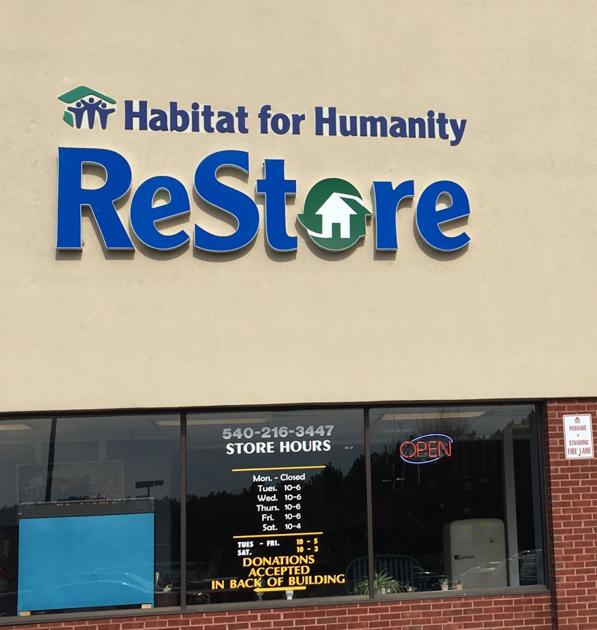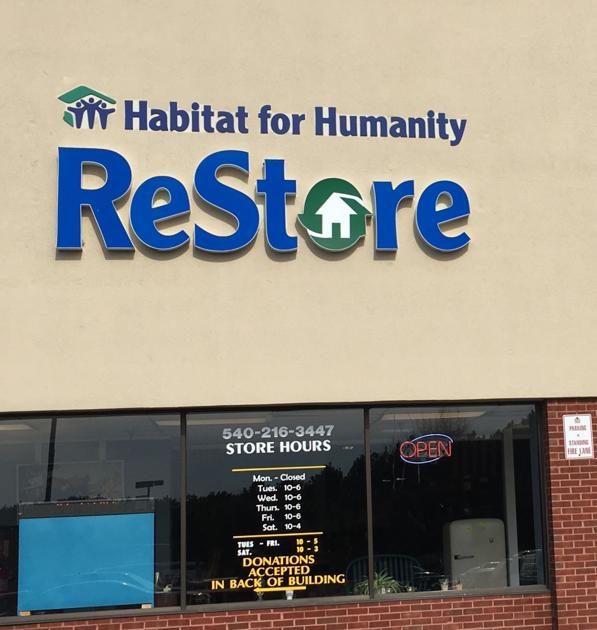
Buy a sofa, help a family. Sounds like a comfy proposition for both parties.
In fact, it’s not just a sofa that makes the magic work. Gently used refrigerators, home furnishings, electrical supplies, plumbing items, windows, doors, kitchen cabinets and a variety of appliances, large and small, all contribute to the effort.
This fair-market exchange works because of the legendary nonprofit organization Habitat for Humanity, founded in 1976. Habitat has helped more than 4 million people construct, rehabilitate or preserve more than 800,000 homes worldwide since its inception.
It is the largest, not-for-profit builder in the world; its success is touching lives here in Fauquier County. While donations fund much of the institution’s operating revenue, its unique retail outlets, known as Habitat ReStores, also funnel dollars into local affiliates tasked with building homes.
Habitat dwellings are not gifted to people gratis. Habitat applicants must be willing to attend required workshops on successful homeownership, to live in the neighborhood where their home is being built, to contribute at least 400 hours of sweat equity toward its construction and to cover the home’s mortgage and other monthly expenses.
It takes big bootstraps to slip into the American dream. Nonetheless, qualified applicants jump at the opportunity if it is afforded them.
But donations and a homeowner’s commitment alone does not raise the roof; that’s where ReStore plugs the gap. While there are nearly 900 ReStores in the United States, they are not ubiquitous to all communities. Fauquier County is fortunate to have one, since the dual purpose of funding Habitat homes while providing quality used merchandise to our citizens is a double win for the community.
Restore locally
Unlike typical retail stores where merchandise is standardized from month to month, Habitat’s home improvement selections will vary from day to day, even hour to hour. Why? Because its “merchandise managers” are the local citizens supplying the store in a steady stream.
What you don’t find at 10 a.m. might well be on sale at 3 p.m. Turnover is rapid and the, “What do you think they’ll have on sale today” proposition makes it a fun place to shop.
“When you first walk into the store, you’re going to get bombarded by our furniture selections. There are tons of furniture items for sale. Something we put on the floor in the morning will be gone later in the day,” said Georgianna Granillo.
Granillo is the store’s director and heads up a paid staff of six full-time and part-time employees. The crew is augmented by some 22 part-time volunteers who circulate in and out of the store during its five-day-a-week schedule. The store is closed on Sundays and Mondays.
(Further highlighting the venture’s benefit to the county, sometimes individuals who have had minor run-ins with the law will be given the opportunity to work off community service sentences at the store.)
Granillo has overseen the store’s operations for almost five years, joining the Habitat team one year after the store opened in 2012. She gained her retail experience working for several big box stores in the region.
“I’m very happy to be here. It makes me wish I had jumped into the Restore job a long time ago. Working with the staff, volunteers, customers and donors makes me feel really great,” she said.
One of the other satisfying things about managing the store is the recycling concept it thrives on. Items brought in that end up on the showroom floor typically have years of use left in them.
Granillo explains that a lot of the donated items might well have been headed for a landfill; instead they enjoy a continued productive life. ReStore offers a second chance to such quality items.
“I feel really good about that. It makes me feel ‘green.’ In addition, all those items are bringing in money to support our mission,” she explained.
Pricing on merchandise is based on condition and quality. Popular living room furniture typically ranges from $50 to $250. “However, we had one high-end leather sofa set that was in excellent condition and originally sold for over $2,000. That one sold for $700,” she said. “But that was on the really high side of our pricing.”
There are items the store does not accept: unframed mirrors or glass, appliances over 12 years old, used mattresses, box springs, clothing, toys, baby furniture, and dishware.
Safety issues and possible manufacturers recall dictate whether certain items are not accepted. “We don’t want to transfer something to a home, and have it hurt someone,” she said.
One popular feature of Restore is donor pickups. The store has a dedicated truck that operates four days a week throughout most of Fauquier County, and at times, beyond, based on the size and quality of the payload.
A typical run will include five to six stops a day. Donors simply contact the store and set up a convenient time for the truck to swing by and relieve them of items that are no longer needed. The service is particularly beneficial when a refurbishing project leaves a homeowner with recyclable furniture or appliances.
As a result of the work at the Warrenton Restore, Fauquier Habitat for Humanity builds one or two homes a year for those in need.

